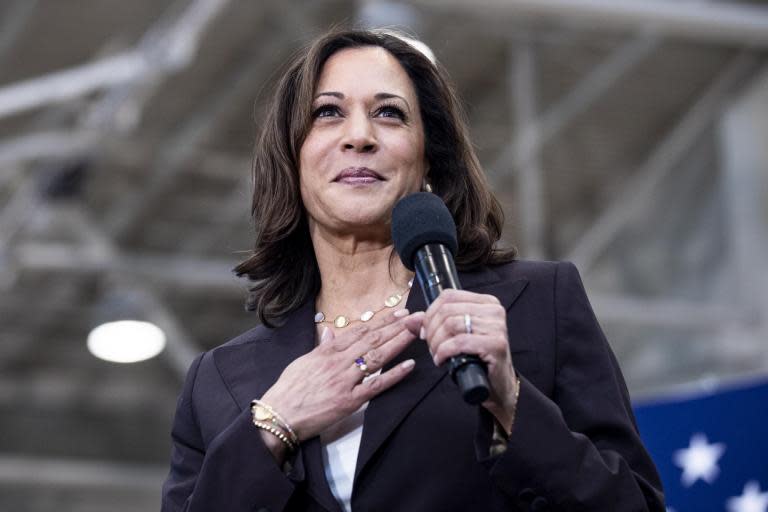Kamala Harris targets abortion bans with ‘Reproductive Rights Act,’ focusing on constitutionality behind restrictions
Kamala Harris has unveiled a new proposal targeting state abortion bans amid a wave of new restrictions being passed across the country.
The 2020 presidential hopeful’s “Reproductive Rights Act” would shift the burden from abortion providers to states attempting to pass bans by forcing them to prove the constitutionality behind the restrictive measures.
If a state is unable to do so, they will not receive a pre-clearance requirement from the California Democrat’s Justice Department, which would be needed to enact the state’s law, according to a fact sheet provided by the senator’s campaign.
The policy leans on an example created by a core special provision of the Voting Rights Act of 1965, known as Section 5, which barred nine states from implementing new voting laws with federal approval due to their discriminatory track records.
Ms Harris, a former prosecutor and attorney general of California, said in a statement announcing her new proposal: “A woman’s constitutional right to an abortion is under attack. Today I announced a plan as president to block these dangerous and deadly state laws before they take effect.”
She has frequently spoken about women’s rights and reproductive health care access along the campaign trail, saying during an interview last week, “I will always fight for a woman's right to make whatever decision she believes is in the best interest of her and her family and the government should not be in the business of taking those decisions away from women."
The policy proposal arrives as states like Alabama, Kentucky, Ohio, Georgia and Mississippi all have passed restrictions against abortions in recent months. The bills have sparked days of nationwide protests and backlash from legal experts, who say the restrictions do not hold constitutional merit.
For example, Alabama’s law is arguably the most restrictive in the country, limiting abortion access once a fetal heartbeat can be detected. This typically occurs just six weeks into a pregnancy, at a time when most people are unaware they are with a child.
Those restrictions fly in the face of the Supreme Court’s 1973 ruling in Roe v Wade, which determined abortion access was a constitutional right.
However, Republican politicians voting for the abortion bans fully acknowledge the end game with passing legally ambiguous bills: to challenge that exact decision and have the Supreme Court review the constitutionality of abortions once again.
"Many Americans, myself included, disagreed when Roe v Wade was handed down in 1973,” Alabama Governor Kay Ivey said in a statement when signing the new law. “The sponsors of this bill believe that it is time, once again, for the US Supreme Court to revisit this important matter, and they believe this act may bring about the best opportunity for this to occur.”
The Reproductive Rights Act is just one of several policy proposals Ms Harris has launched in recent weeks ahead of the first Democratic presidential primaries.
The senator has also unveiled an equal pay policy that would force companies to reveal their gaps in wages among different genders — and face major fines for not paying employees equally — as well as a federal investment in teacher’s wages.


